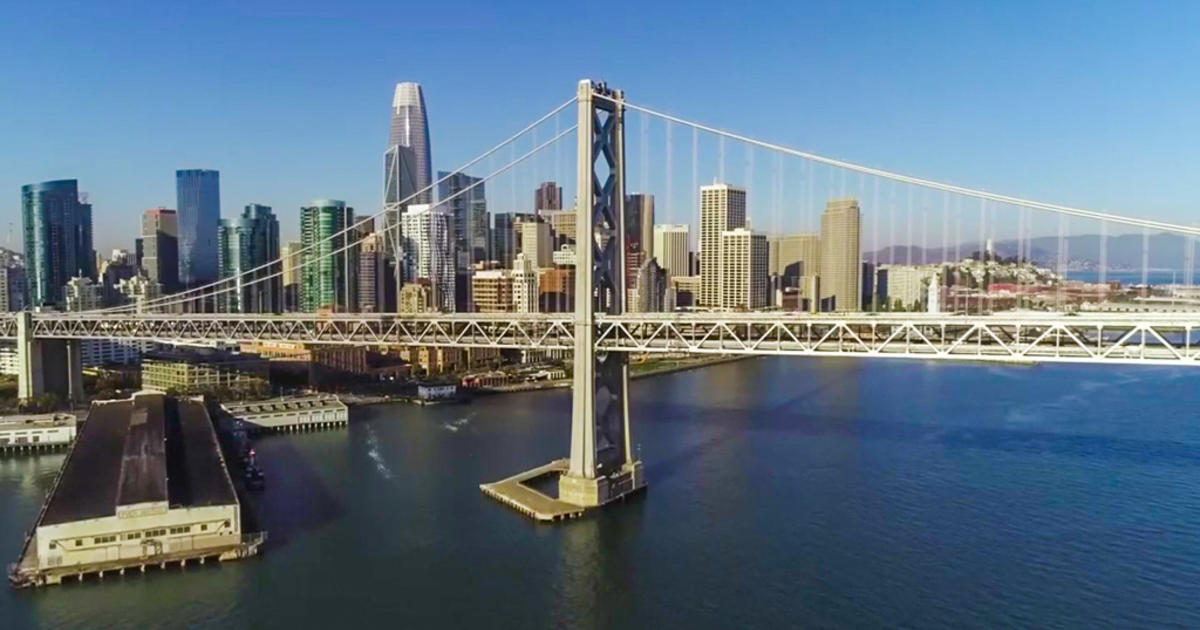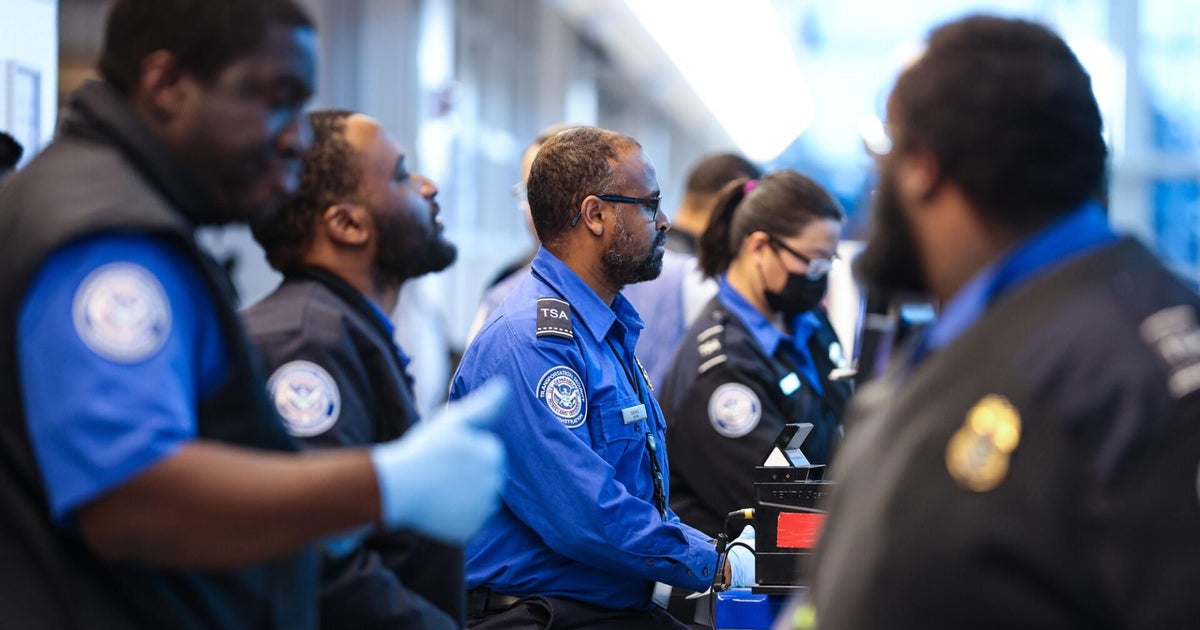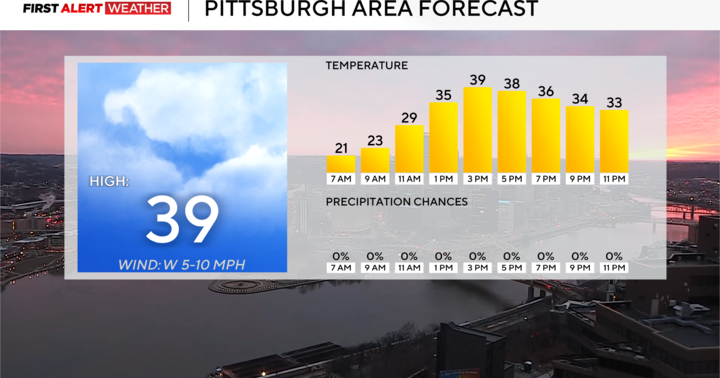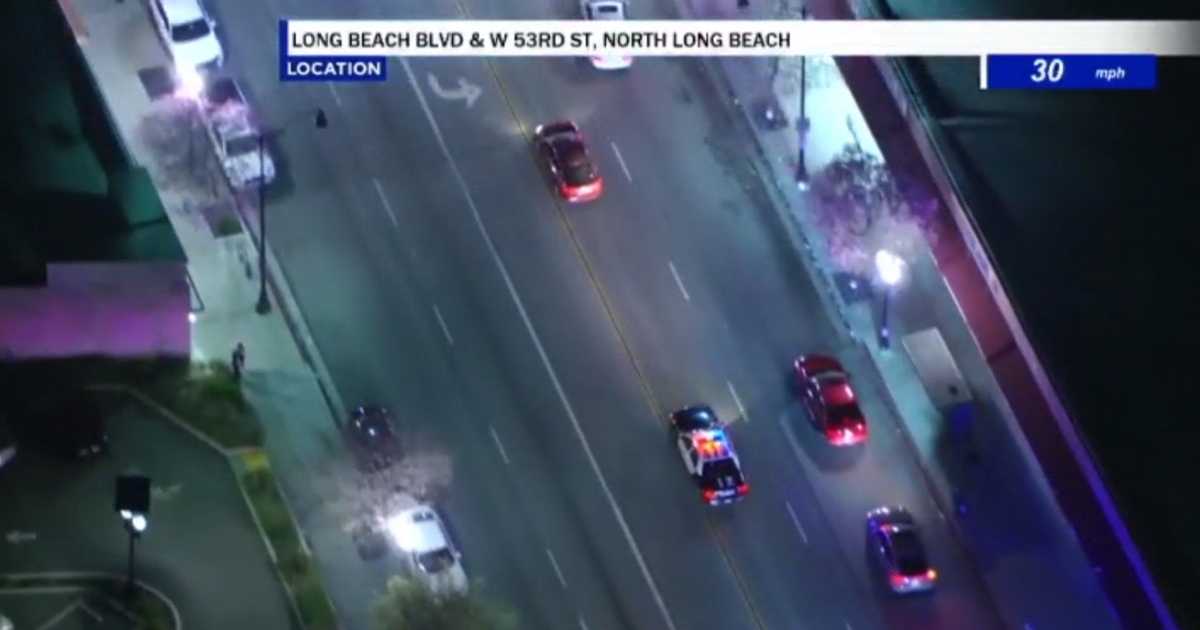COVID: Experts Weigh Possible Cornonavirus Risks for Summer Air Travel
By Elizabeth Cook & Molly McCrea
With the summer months almost here, and COVID-19 vaccinations continuing to increase, Bay Area residents are daydreaming about travel destinations and possibly even taking to the skies.
Tuesday afternoon at San Francisco's International Terminal, it was quiet, but it's clear SFO is no longer a ghost town.
SFO's public information specialist Doug Yakel told KPIX 5 the terminals are active again. In April 2020, there were fewer than 2,000 people per day going through security checkpoints.
Now, the airport is reaching a new high mark for passenger activity almost every week. SFO just cleared 30,000 passengers a day. Yakel predicts the airport will reach 40,000 a day during the summer.
"We're still at about 50% of what our pre-pandemic activity was, but this is the longest stretch of positive passenger growth since the pandemic began," noted Yakel.
Flight crews are assembling, there's optimism in the air, and a growing wanderlust among passengers.
"During this upcoming summer, I think it could be a really good idea to just get out and explore and to live life," remarked passenger Dani Oyatayo.
Where in the world would she like to visit? Oyatayo told KPIX 5 Dubai, or the Caribbean.
"We've been quarantined for months, and trapped inside of our homes," she said.
Costa Rica is what Gary Gabert identified as a dream location.
Gabert was with his two small daughters when he came to the terminal to pick up a relative. He told KPIX 5 that he now feels perfectly safe traveling by air.
"With the vaccinations rates going up, and less people found and transmitting, I don't see why we would have any issues moving forward," said the young father.
Neither does UCSF infectious disease expert Dr. Monica Gandhi.
Dr. Gandhi's strategy: stay away from hot spots and only travel to places where COVID-19 cases are low and vaccination rates high, such as the United Kingdom.
"It is absolutely safe to travel because you're protected by your vaccine. And anyone who is with you who is not vaccinated yet like a child is protected by the low case rates in the region," explained Gandhi.
The CDC recommends that you do not travel internationally until you're fully vaccinated. People are considered fully vaccinated two weeks after their second dose in a two-dose series; or two weeks after a single-dose vaccine, such as Johnson & Johnson's "one and done" vaccine.
But the agency also warns, even if you are fully vaccinated, you may be at an increased risk for getting and possibly spreading one of the new COVID-19 variants.
Dr. Gandhi disagreed.
"If you're vaccinated, I'm not worried about the variant," said the UCSF expert.
Gandhi told KPIX 5 that the focus is too much on the part of the immune system known as antibody response.
She explained how our immune system is far more complex and that the COVID-19 vaccines generate not just antibodies, but a deeper, and durable arm of the immune system called t-cells. Those t-cells will offer protection against the variants, she said.
But she warned if you're immunocompromised, you need to take precautions.
"Keep that mask on, keep the distancing out in the community," said Dr. Gandhi.
When it comes to masks, travelers will definitely want to pack them.
Yakel reminded KPIX 5 how there is a federal mandate still in place. Bottom line: anytime you're at an airport or onboard an aircraft, you must be wearing a face mask.
"So, hang on to those masks, you'll need them for air travel," said Yakel.
As for vaccine credentials, they are not yet required for SFO. However, the airport is testing a pilot program with Air France on flights between Paris and the Bay Area.
Passengers can download a mobile app and register their vaccinations as well as any negative COVID test results within 72 hours of travel.
The CDC is asking all international travelers get tested 3-5 days after travel. You don't need to get tested before leaving the U.S. unless your destination requires it. And, you don't have to self-quarantine after arriving in the U.S.
At SFO, there are now three onsite COVID-19 testing services for passengers: in the International Terminal, Terminal 3, and at a drive thru testing site adjacent to long-term parking.
Dr. Gandhi told KPIX 5 that she predicts the testing will soon only be recommended for travelers who are symptomatic of a COVID-19 infection.







